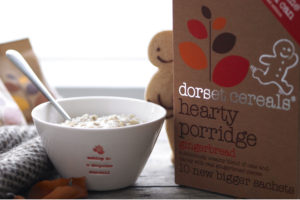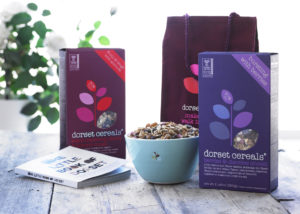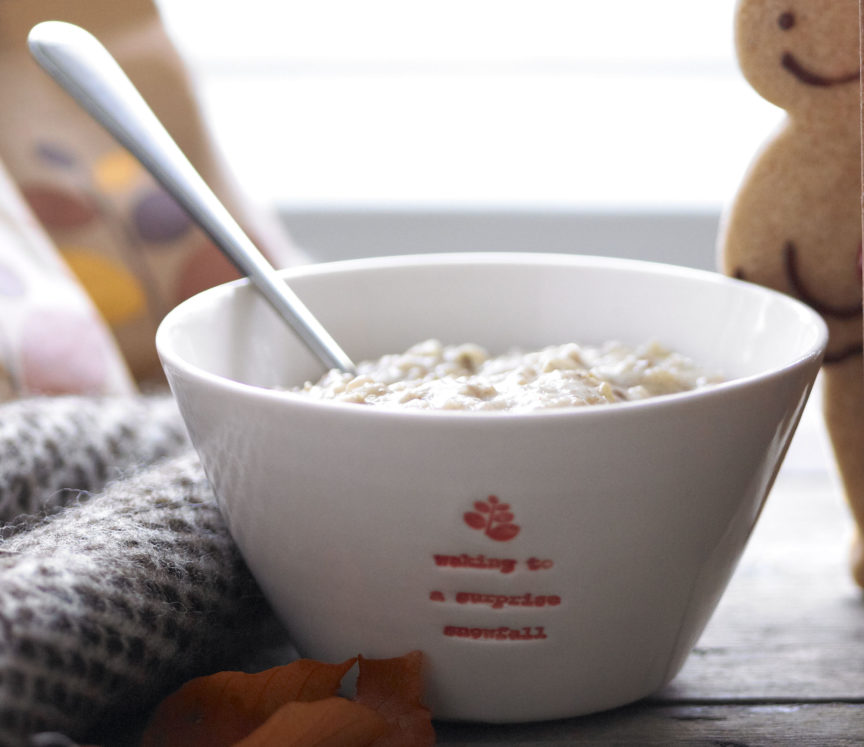Most of us know that skipping breakfast is considered bad form – breaking your ‘fast’ (not eating for the hours that you sleep) is frowned up on my doctors and nutritionists.
So, given that most of us do have breakfast, there is then the host of options to choose from – tea and toast, porridge, a range of cereals or going to work on an egg.
 But for diabetics, not only do we have to take into account convenience (are we just grabbing something as we go out of the door – can we eat it in the car / on a train / while walking to the station?), but also the carb content and the relative GI. Jam on toast, honey in porridge can make a sensible choice into a bad one.
But for diabetics, not only do we have to take into account convenience (are we just grabbing something as we go out of the door – can we eat it in the car / on a train / while walking to the station?), but also the carb content and the relative GI. Jam on toast, honey in porridge can make a sensible choice into a bad one.
For diabetics the double-whammy is that most humans have what is referred to as the ‘dawn phenomenon’ – your body naturally starts to produce a rise in blood sugars in the early hours (6 or 7am) as it readies to get you up out of bed and out on the road to start your day. It tends to mean that diabetics are putting in food just while their body is also assisting with its own sugar boost.
For a long while, Diabetes UK’s advice on breakfast was that they were all pretty much of a muchness – a dangerous bit of advice when in fact breakfast choices vary immensely, particularly in sugar and fat content.
Skipping stones
According to a study of almost 2,000 men who did not have Type 2 diabetes, heart disease, or cancer, those who didn’t eat breakfast had a 21% higher risk of developing Type 2. The study followed the men for 16 years. Snacking was also associated with an increased risk of Type 2 diabetes, but the impact was weakened when body mass index was taken into account.
So, it seems skipping breakfast might even lead to developing diabetes. But if you’re already diabetic, it’s no excuse not to have breakfast either, even if you skip it because you are late for work.
 According to breakfast brand Dorset Cereals more than half the population of the UK admits to skipping breakfast more than once a week in order to get an extra few minutes in bed. As a result, their new Breakfast Pots are designed to be eaten at work. Rob Ward of Dorset Cereals comments, “People who eat breakfast are funnier, sexier, and more efficient at work than people who don’t — well that’s what the team at Dorset Cereals thinks any way! So helping people who might have missed breakfast but still want something tasty to eat is our primary mission, you could say we are on a bit of crusade.”
According to breakfast brand Dorset Cereals more than half the population of the UK admits to skipping breakfast more than once a week in order to get an extra few minutes in bed. As a result, their new Breakfast Pots are designed to be eaten at work. Rob Ward of Dorset Cereals comments, “People who eat breakfast are funnier, sexier, and more efficient at work than people who don’t — well that’s what the team at Dorset Cereals thinks any way! So helping people who might have missed breakfast but still want something tasty to eat is our primary mission, you could say we are on a bit of crusade.”
Most cereals – despite all their marketing, are chock-full of sugar. Even if you always have the same brand, remind yourself of the sugar content by reading the labels once more. You could well be amazed. Things like Frosties and Crunchy Nut cornflakes are coated in sugar.
At the other end of the scale, the thought of porridge can bring to mind images of grey-coloured, gruel-like bowls of slop, but those images are seriously outdated. With the UK porridge market now worth £157 million, the hot cereal market has grown by 30% over the past two years. Another terribly British breakfast brand, alongside Dorest Cereals, is Rude Health. Also boasting attractive packaging and snappy marketing, Rude Health’s porridge range includes Morning Glory, Daily Oats, Fruity Date, and Top Banana. They claim that The Oatmeal, their newest recruit to the ranks, is a solution for purists and perfectionists.
 Made from organic Scottish oatmeal, The Oatmeal was developed by Nick Barnard, co-founder of Rude Heath, and contains a blend of steel cut pinhead and medium oatmeal. It is a porridge aimed at the new breed of ‘make it yourself’ purists, and old world traditionalists, dedicated to perfecting the craft of porridge cooking. Barnard says, “Rude Health makes porridge for the purists – young and old – who want traditional taste, texture, value and health – and to make it themselves! It’s all about the experience, and the ceremony of making your breakfast, as well as the comfort of knowing what goes into your porridge is 100% natural and unrefined.”
Made from organic Scottish oatmeal, The Oatmeal was developed by Nick Barnard, co-founder of Rude Heath, and contains a blend of steel cut pinhead and medium oatmeal. It is a porridge aimed at the new breed of ‘make it yourself’ purists, and old world traditionalists, dedicated to perfecting the craft of porridge cooking. Barnard says, “Rude Health makes porridge for the purists – young and old – who want traditional taste, texture, value and health – and to make it themselves! It’s all about the experience, and the ceremony of making your breakfast, as well as the comfort of knowing what goes into your porridge is 100% natural and unrefined.”
You needn’t slave over a hot stove in the morning stirring your porridge. Bunging it in the microwave will take about two minutes.
Breakfast choices
Granola is a lesser-known breakfast ingredient in the UK but it’s a good one, as it has a low GI.
Muesli is often delicious and is seemingly a healthy option, watch out for both sugar and fat content in muesli. They are often surprisingly high in carbs and sugars as dried fruits are used in most brands. Not a bad option, but read the labels and try actually weighing it out when you first start using it. 100g might be 40 carbs but 100g once weighed out can look like a very small portion!
Porridge is fabled as an excellent start to the day, the reason porridge is so popular is not just that it’s cheap (which comparatively speaking it is), but while it does have a carb content, the sugars are released very slowly and evenly giving you a nice full feeling all morning without a huge sugar dump. You can embellish with fresh fruit and stir in yoghurt instead of cream for a touch of luxury.
A little bit of toast. There’s not a lot wrong with a few slices of toast in the morning, so long as you avoid white bread slathered in butter and jam. Toast is probably not the top choice for a breakfast for a diabetic, but if you do prefer it, try to have a low sugar spread where you can and try to buy brown bread.
Food features and recipes like this appear in the Desang Diabetes Magazine, our free-to-receive digital journal. We cover diabetes news, diabetes ‘kit’ and information on food suitable for maintaining good blood glucose control or a diabetic diet, including a regular Making Carbs Count column. It’s free! Go to the top of this page to sign up – we just need your email address. See current and past issues at
www.desang-magazine.co.uk
Open publication

